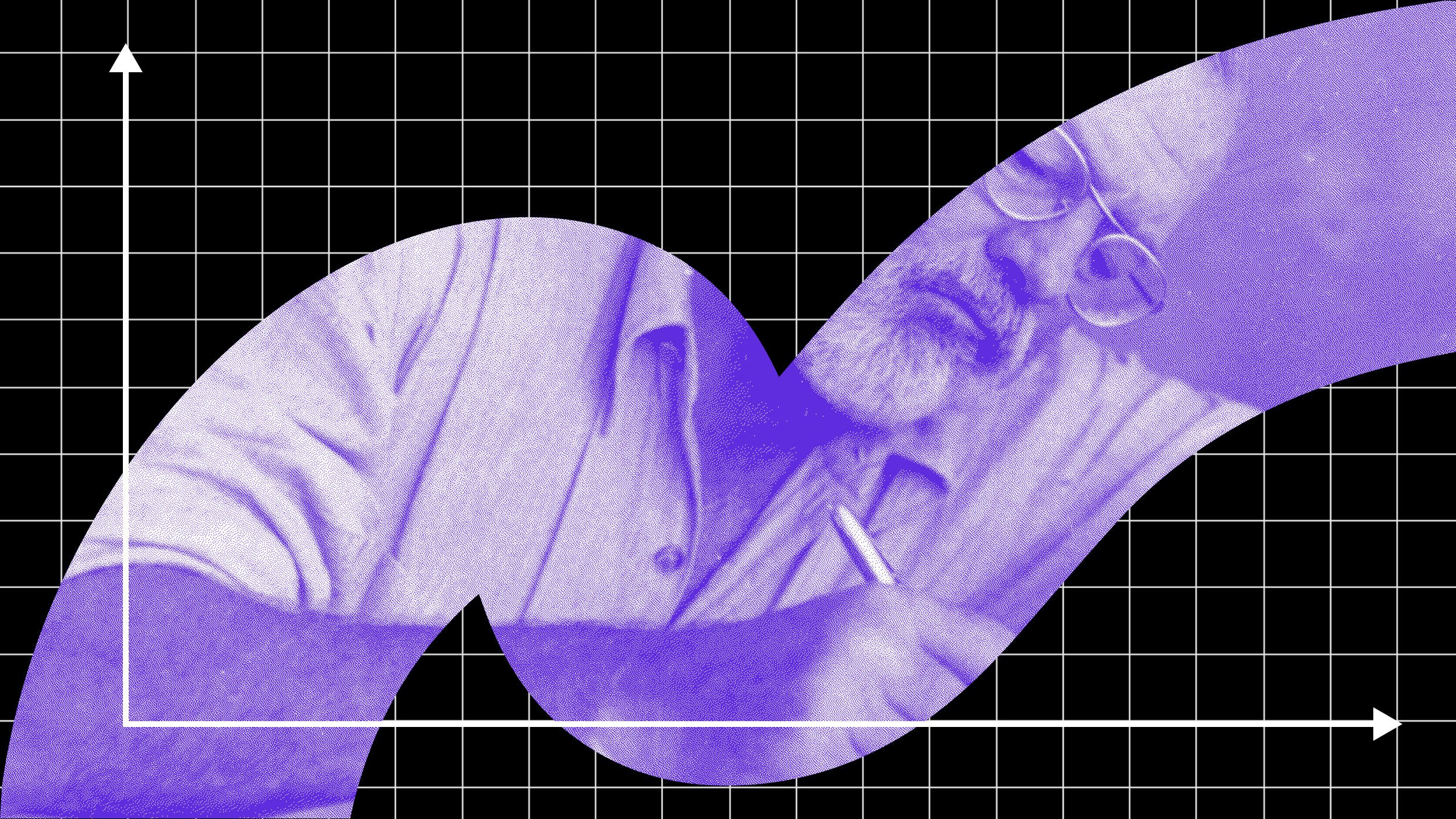Yann Martel is the author of The High Mountains of Portugal and Life of Pi, the #1 international bestseller and winner of the 2002 Man Booker (among many other prizes). He is also[…]
Sign up for the Smarter Faster newsletter
A weekly newsletter featuring the biggest ideas from the smartest people
Why has the “Life of Pi” author been sending novels to the Canadian prime minister?
Question: Why have you been sending books to the Canadian rnprime minister?
Yann Martel: Yes, exactly, especiallyrn fiction. Why? Because fiction, art, is the best way to explore the rnother. So, one of the books that I sent Prime Minister Harper of rnCanada, was "The Bluest Eye" by Toni Morrison, which is about a rn12-year-old black girl in urban Ohio, I think in the ‘50’s. And that asrn far from Stephen Harper’s, who was an empowered, white, middle-aged rnmale in Canada, that’s as far as far a distance likely as you can get inrn North America. Well, no matter, you read that novel, you read "The rnBluest Eye," and you are that 12-year-old black girl from a highly rndysfunctional, African-American family. So for a few pages, you’ve beenrn that black girl. The same thing with, you know, Zora Neale Hurston, rn"Their Eyes Were Watching God," wonderful language, you are an rnAfrican-American speaking in the African-American vernacular. You read,rn "Maus," by Art Spiegelman, another book I sent Harper, you are a Jew inrn Europe during the Holocaust.
So if a world leader does not read rnfiction, how do they know what it means to be the other? In a broad, rnemotional way, not just factually, you read here, another one, Chinua rnAchebe, "Things Fall Apart," a fantastic, fantastic Nigerian novel aboutrn the encounter between Nigeria and England during the time of rncolonialism. How one flawed society met another flawed society, it’s anrn amazingly powerful, even-handed... it’s not a screed against rncolonialism, it’s extraordinarily even handed about the tragedy of two rnpeople that met who did not manage to meet each other, did not manage torn communicate. If you don’t read any of that kind of stuff, how do you rnknow the world? How do you know the possibilities of the world? How rncan you understand the other? Therefore, how can you get your vision? rnWhat kind of blinkered vision do you have if you’ve never read a novel, arn poem, a play?
You know, we can’t be led by people—and let’s be rnaccurate here, what I’m naming here are middle class, white males—we rncan’t be led by middle class, white males who have no vision beyond a rntechnocratic, economic vision. Otherwise, they will lead us like, as ifrn we were a corporation where the bottom line is profit. And the bottom rnline of society, of us as a people, an American people, a Canadian rnpeople, a Paraguayan people, what you want, is not an economic bottom rnline, it’s a cultural one, it’s an existential one. And that economics rnis one part of it, you cannot have governments that care nothing about rneconomics, that would be crazy. But you can’t just be about economics. rn You know, it has to be about "What are we here for?" And we are here rnto be together, to talk, to try to understand life.
You know, rnculture is not just money for the National Endowment for the Arts. rnCulture is everything, of which the economy is only a component. So a rnleader who knows nothing about the arts, to me, that is scary. And so rnlook at Barack Obama, bless the man, he wrote to me, he wrote me a rnletter about "Life of Pi." I’m not even American, he had nothing to rngain, he just wrote to me because he liked my book and he wrote to me. rnAnd look at his language, look at his vision. I’m not saying that rnbecause you read books you will be a good leader. If that were so, you rnknow, literary, you know, reviewers at the New York Times would all be rnpresidents. No, that’s not the case, but, so, it’s not that readers rnmake, reading makes you a leader, but to lead, you must have read. To rnlead you must read, because that nourishes your vision. So that’s what rnI’m trying to point out in this campaign, which there’s a blog, rnWhatIsStephenHarperReading.com, one word, what is Stephen, Stephen with arn P-H, it’s a blog, you’ll see all the letters I’ve written, with the rnbooks that I send him every two weeks, and it asks people, "What do we rnwant of our leadership?" I think we want people who have a breadth of rnvision that you get by reading.
Question: Has he rnresponded to you?
Yann Martel: No, not at all, I’vern received five replies from his office, none from the man himself. And rnas I said, the contrast between Barack Obama, to whom I’ve never rnwritten, who writes to me, a handwritten note. I must be the first rnperson in Saskatoon, Saskatchewan to get a letter from the sitting rnpresident of the United States. One handwritten note from my own prime rnminister, to whom I’ve sent 79 books with 79 letters—nothing. The rncontrast couldn’t be starker.
Recorded April 13, 2010
Yann Martel: Yes, exactly, especiallyrn fiction. Why? Because fiction, art, is the best way to explore the rnother. So, one of the books that I sent Prime Minister Harper of rnCanada, was "The Bluest Eye" by Toni Morrison, which is about a rn12-year-old black girl in urban Ohio, I think in the ‘50’s. And that asrn far from Stephen Harper’s, who was an empowered, white, middle-aged rnmale in Canada, that’s as far as far a distance likely as you can get inrn North America. Well, no matter, you read that novel, you read "The rnBluest Eye," and you are that 12-year-old black girl from a highly rndysfunctional, African-American family. So for a few pages, you’ve beenrn that black girl. The same thing with, you know, Zora Neale Hurston, rn"Their Eyes Were Watching God," wonderful language, you are an rnAfrican-American speaking in the African-American vernacular. You read,rn "Maus," by Art Spiegelman, another book I sent Harper, you are a Jew inrn Europe during the Holocaust.
So if a world leader does not read rnfiction, how do they know what it means to be the other? In a broad, rnemotional way, not just factually, you read here, another one, Chinua rnAchebe, "Things Fall Apart," a fantastic, fantastic Nigerian novel aboutrn the encounter between Nigeria and England during the time of rncolonialism. How one flawed society met another flawed society, it’s anrn amazingly powerful, even-handed... it’s not a screed against rncolonialism, it’s extraordinarily even handed about the tragedy of two rnpeople that met who did not manage to meet each other, did not manage torn communicate. If you don’t read any of that kind of stuff, how do you rnknow the world? How do you know the possibilities of the world? How rncan you understand the other? Therefore, how can you get your vision? rnWhat kind of blinkered vision do you have if you’ve never read a novel, arn poem, a play?
You know, we can’t be led by people—and let’s be rnaccurate here, what I’m naming here are middle class, white males—we rncan’t be led by middle class, white males who have no vision beyond a rntechnocratic, economic vision. Otherwise, they will lead us like, as ifrn we were a corporation where the bottom line is profit. And the bottom rnline of society, of us as a people, an American people, a Canadian rnpeople, a Paraguayan people, what you want, is not an economic bottom rnline, it’s a cultural one, it’s an existential one. And that economics rnis one part of it, you cannot have governments that care nothing about rneconomics, that would be crazy. But you can’t just be about economics. rn You know, it has to be about "What are we here for?" And we are here rnto be together, to talk, to try to understand life.
You know, rnculture is not just money for the National Endowment for the Arts. rnCulture is everything, of which the economy is only a component. So a rnleader who knows nothing about the arts, to me, that is scary. And so rnlook at Barack Obama, bless the man, he wrote to me, he wrote me a rnletter about "Life of Pi." I’m not even American, he had nothing to rngain, he just wrote to me because he liked my book and he wrote to me. rnAnd look at his language, look at his vision. I’m not saying that rnbecause you read books you will be a good leader. If that were so, you rnknow, literary, you know, reviewers at the New York Times would all be rnpresidents. No, that’s not the case, but, so, it’s not that readers rnmake, reading makes you a leader, but to lead, you must have read. To rnlead you must read, because that nourishes your vision. So that’s what rnI’m trying to point out in this campaign, which there’s a blog, rnWhatIsStephenHarperReading.com, one word, what is Stephen, Stephen with arn P-H, it’s a blog, you’ll see all the letters I’ve written, with the rnbooks that I send him every two weeks, and it asks people, "What do we rnwant of our leadership?" I think we want people who have a breadth of rnvision that you get by reading.
Question: Has he rnresponded to you?
Yann Martel: No, not at all, I’vern received five replies from his office, none from the man himself. And rnas I said, the contrast between Barack Obama, to whom I’ve never rnwritten, who writes to me, a handwritten note. I must be the first rnperson in Saskatoon, Saskatchewan to get a letter from the sitting rnpresident of the United States. One handwritten note from my own prime rnminister, to whom I’ve sent 79 books with 79 letters—nothing. The rncontrast couldn’t be starker.
Recorded April 13, 2010
▸
3 min
—
with





